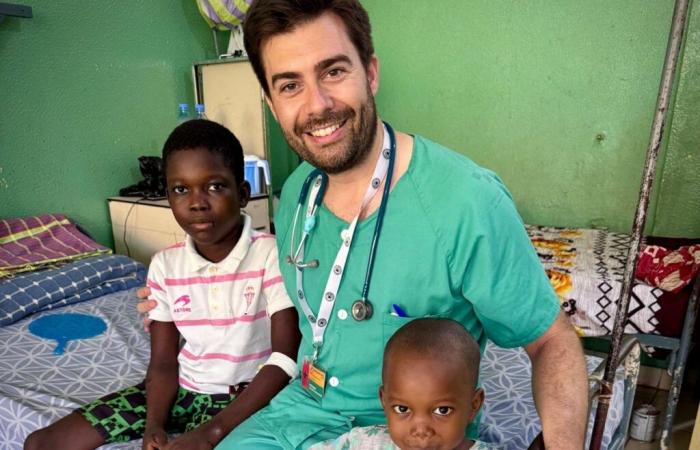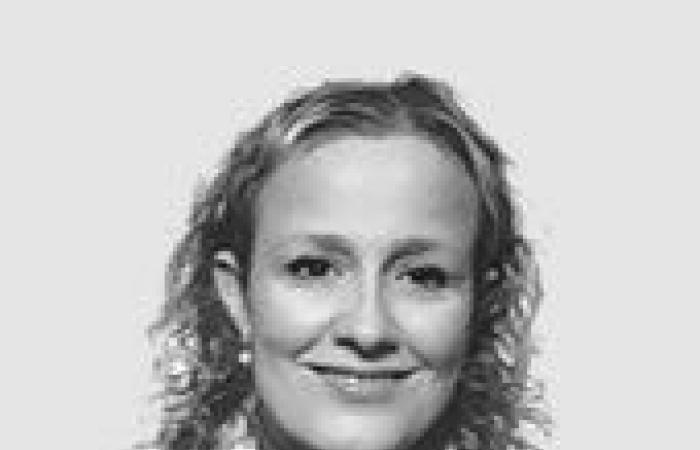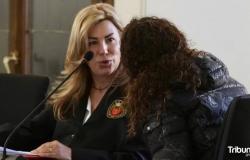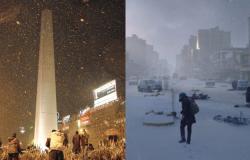Friday, May 2, 2025, 20:08
The Gijón Neuropediatra Antonio Hedrera traveled on April 14 to Guinea-Bisáu to take a hand at the Simão Mendes National Hospital. A volunteer mission promoted by the NGO Sopesur in which eight doctors and four nurses of Valladolid, León, Barcelona and Asturias participated. With them they carried 24 bags loaded with drugs and sanitary and surgical material, including a portable ultrasound. What they brought back to the western world, last Sunday, was “an experience that I will always take with me”, in addition to “the satisfaction of having contributed to cure or at least significantly improve the quality of life” of who were their patients in the African country.
To put ourselves in a situation: half of the population of Guinea-Bisáu lives in the extreme poverty; Its infant mortality rate is one of the highest in the world; It is not possible to become a magnetic resonance; The drippers hang from alcoyatas on the wall; and in the pediatric plant of the Simão Mendes – hospital of reference of the country – they can share room twelve children with their respective families. “And here we complain about being in double rooms,” says Dr. Hedrera, one of the professionals who launched the Huca Pediatric Palliative Care Unit, where his ordinary activity resumed this last Monday, the day of the blackout. «There was the light four or five times a day; Of course, for less time, ”he says.
The Sopesur team, of which the anesthetist of the Valle del Nalón Álvaro Regueira Hospital was also part of the same day of his arrival in the capital of Guinea-Bisáu. Ahead, they had 46 surgeries and a list of 80 patients who would soon become more than 150. “The voice began to run that ‘whites are passing consultation’ and every day there were more people queuing to study their children,” says Antonio Hedrera. And incidentally, also parents and grandparents consulted their own health problems.




“We find many infectious pathologies that we do not see here or that are very uncommon, such as extrapulmonary tuberculosis, tracoma cases – ocular disorder caused by clamidia that can cause blindness -, malaria …”, he explains. Also serious hydrocephalias and malformations, caused largely due to the lack of prenatal control or the inadequate monitoring of pregnant women. Or “very extensive” burns, which have to do with the fact that families “cook in Fueguillos” without any protection.
That, apart from the pathology shared by children and adolescents around the world. Although, in the case of Guinea-Bisáu, without resources or access to the necessary treatments. “We saw very hard situations, even a little woman without arms or legs,” says Dr. Hedrera, “very possibly because there the pregnant women continue to take tastomide.” Drug used to combat the nausea that Spain stopped marketing in 1962, precisely by the malformations and anomies detected in some babies of the time.
Pabelinho and his Sporting de Gijón pole
«It’s not just that Guinea-Bisáu lacks health media or has difficulty accessing medical treatments. It is that many families cannot pay the medicines that prescribe them, ”he says. And despite living daily with adversity, in a tremendously hostile environment, “they are always smiling; They are affectionate, friendly … very grateful, ”says this HUCA pediatrician, who, during his stay in Bisáu, also visited a pediatric center of neurological pathology – his specialty -, with which he will continue to collaborate from distance.
But pediatric pediatric surgeons, anesthetists and nurses who participated in this volunteer mission not only contributed knowledge, medical solutions and days that sometimes extended until midnight. We also wanted to lead this country from Western Africa, located almost 5,000 kilometers from Asturias: balloons, colored pencils, books to draw and stickers with smiling faces that excited Mamadjan, a 6 -year -old boy who had been admitted since December at the Simão Mendes National Hospital for a malaria that was complicated.
He shared a room with Pabelinho, hospitalized for months for an anemia difficult to control. A 12 -year -old boy with whom Antonio Hedrera also became fond of and used to wear soccer clothes. On one occasion, to the surprise of the Gijon pediatrician, Pabelinho dressed in a Sporting pole, whose origin “never knew.” The kid “was very happy when I told him that it was the shield of my city’s team”, which he now knows how to pronounce.
-Session boundary
Access to premium content is open by courtesy of the establishment where you are, but right now there are too many users connected at the same time.
Please try it after a few minutes.
Try again
Closed session
When you log in from a different device, for security, the last session was closed in this.
To continue enjoying your digital subscription, log in to this device.
This content is exclusive to subscribers
Do you have a subscription? Locate session







